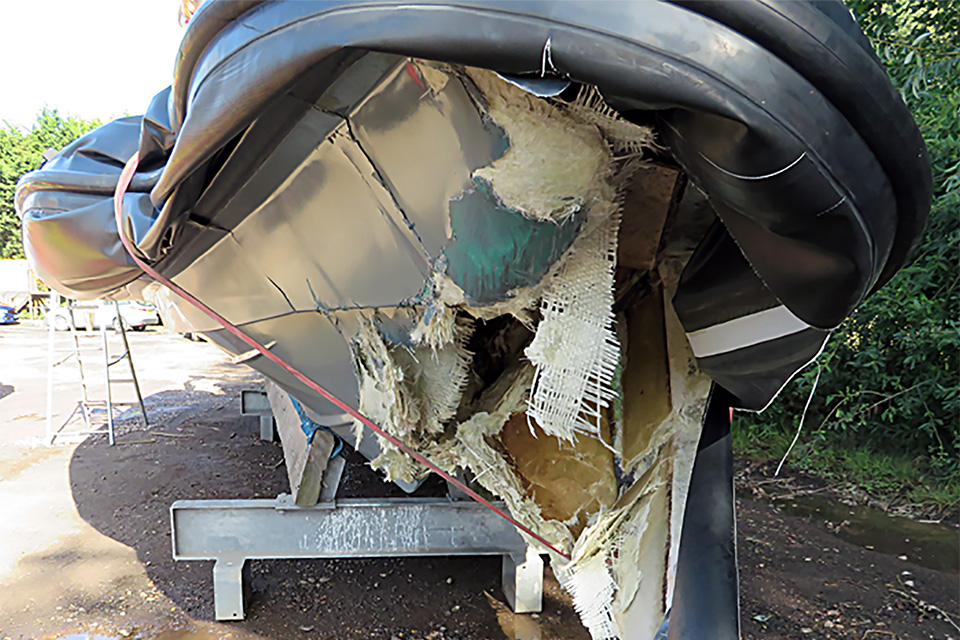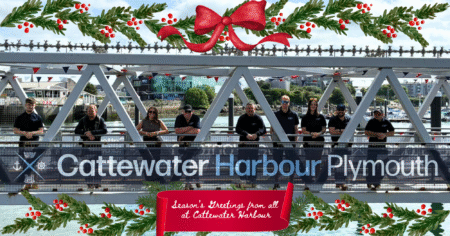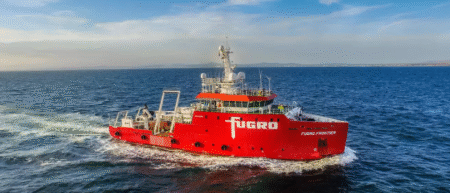Loss of life when a high-speed passenger craft made heavy contact with a navigation buoy in Southampton Water, England.
Today, we have published our investigation report into the fatal accident involving the rigid inflatable boat (RIB) Seadogz. In a foreword to the report, the Chief Inspector of Marine Accidents, Andrew Moll OBE, said:
The tragic events that took place in Southampton Water on the morning of 22 August 2020 have had an unimaginable impact on all of those affected by the accident. The fact that a passenger excursion on a modern rigid inflatable boat being operated in favourable conditions by an appropriately qualified and highly experienced skipper could result in such terrible consequences is difficult to comprehend.
Two things are especially significant about this tragic accident in which 15-year-old Emily Lewis sadly died and the other passengers all sustained injuries, many of which were serious:
The first is that the accident would likely not have happened had the trip been conducted in line with industry good practice. All skippers of commercial high-speed craft are taught safe boat handling while gaining their qualifications, and there is no excuse for abandoning professional standards when undertaking a high-speed trip or experience ride.
The second is that passengers in small high-speed craft are very vulnerable to impact and vibration injuries. In the last 15 years, the MAIB has investigated numerous accidents involving high-speed passenger craft and made various recommendations to improve the safety of this sector. However, as yet, little has been done to provide proper protection to passengers and crew from these hazards that routinely result in life-changing injury and, occasionally, death.
I am therefore hoping that the maritime regulator, manufacturers and operators of small high-speed passenger craft will take the lessons from this report as a stimulus to action. As the report says, this was an accident waiting to happen. Let it be the last.
Read our marine accident investigation report, which includes what happened, subsequent actions taken and recommendations:
Summary
On the morning of 22 August 2020, the commercially operated rigid inflatable boat (RIB) Seadogz crashed into a 4.5m high, 5-ton channel marker in Southampton Water at a speed of 38.4 knots. The RIB’s engine stopped abruptly and two of the passengers were catapulted overboard into the water, where their lifejackets inflated.
All eleven passengers and the skipper were treated in hospital, most for substantial impact injuries. One, a 15-year-old passenger, had sustained severe injuries when she was thrown against the handhold directly in front of the bench seat. She died in hospital that afternoon.
Safety Issues
- The skipper did not see the buoy in sufficient time to take avoiding action. He had lost his positional awareness, most likely due to the high mental workload associated with operating at high-speed close to other marine assets.
- Seating and handholds afforded little protection to those on board in the event of a rapid deceleration.
- The RIB’s operating company did not have a safety management system, and their risk assessments were cursory and generic.
- The regulations did not consider the intended operation or high-speed operations of a small commercial craft. Significant limitations were identified, including:
- crash protection
- seat design
- forward visibility
- safety management system requirements
Recommendations
Recommendations (2023/120, 2023/121 and 2023/122) have been made to the Maritime and Coastguard Agency to: conduct an anthropometric assessment of the design and operational requirements for the protection of passengers and crew on small commercial high-speed passenger craft; ensure the relevant outputs of the anthropometric assessment are, where appropriate, promulgated into guidance and incorporated as future requirements; and, to expedite the introduction of the Sport & Pleasure Vessel Code.
The British Standards Institution has been recommended (2023/123) to propose to the International Organization for Standardization that ISO 11591 is revised to include a field of vision requirement from the steering position of small craft.
A recommendation (2023/124) has been made to the British Ports Association, UK Harbour Masters’ Association, and the UK Major Ports Group to contribute to the development of guidance on the oversight of small commercial high-speed passenger craft operations in port areas.
Associated British Ports Southampton has been recommended (2023/125 and 2023/126) to ensure that its risk assessments consider the operation of small commercial high-speed craft within the port limits and agree the proper use of these craft with their operators.
The RIB’s manufacturer has been recommended (2023/127) to ensure that the design of the seats, handholds and restraints on its high-speed craft meet the latest relevant industry guidance and that the documentation provided to owners is accurate.




